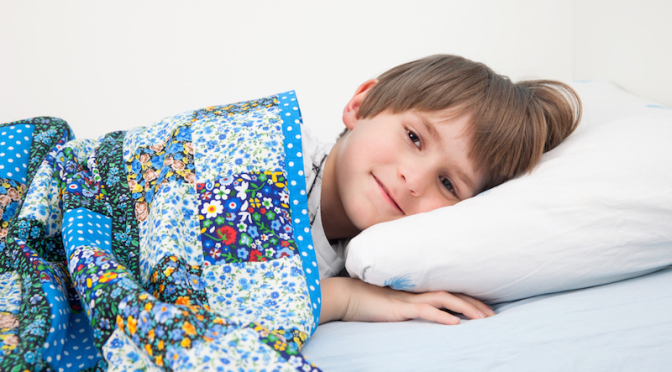CSP Team Note: Bedwetting is a common problem that can cause embarrassment for some children. We talked to Dr. Rhonda Patt, pediatrician at Charlotte Pediatric Clinic for her insight into bedwetting and some tips for parents whose children are struggling with it. A big thank you to Dr. Patt for taking the time to talk to us!
What age does bedwetting become a problem?
Bedwetting is very common. Most children will continue to wet the bed at night long after daytime potty-training is complete. Parents should be concerned about bedwetting only if it re-starts after a 6-month period or longer of staying dry.
At what age should a child stay dry all night?
Most children are staying dry all night by age 6. Some children stay dry as young as age 2 and some may continue wetting the bed past age 10. However, only 10% of children ages 7 and older are still wetting the bed.
What causes bedwetting?
There are several possible causes of bedwetting. For most people, the brain secretes higher levels of a hormone called ADH (anti-diuretic hormone) at night. This leads to decreased urine production overnight. Typically, at some point after daytime potty-training has occurred, parents will notice that their child is waking with a dry diaper in the morning. This usually occurs naturally as nighttime ADH secretion increases at a certain age. So the most common cause of bedwetting is when urine production continues at a daytime pace overnight, and a child is sleeping too deeply to wake up to the signal of a full bladder. Other causes can include a small bladder capacity, constipation, and certain medical conditions.
When should a child seek medical care for bedwetting?
If a child is not staying dry at night by age 6 or has started wetting the bed after at least 6 months of being dry, then it is important to seek medical advice to evaluate for other causes.
What are some effective behavioral strategies for bedwetting?
There are several behavioral strategies that should be employed prior to considering medication. First, it is important to make sure that your child is urinating often enough during the day- about every 2 hours. Many children are only emptying their bladder 3 times during the day leading to some bladder dysfunction. Second, treat underlying constipation. Children should be having 1-3 daily soft bowel movements a day. Third, have your child empty the bladder at the beginning of the bedtime routine then once more right before bed. Fourth, reduce fluid intake in the evening and avoid caffeinated, carbonated or sugar-containing beverages. Finally, consider waking your child about 1-2 hours after falling asleep to urinate if still wetting the bed after applying steps 1-4.
What is the medical treatment for bedwetting?
The most important part of treatment are the behavioral strategies listed above. If a child who is over the age of 6 years is still wetting the bed after behavioral interventions, then medication is an option. There is a medication called DDVAP that mimics the body’s natural hormone that will lead to reduction of urine production overnight. DDAVP is not a cure for bedwetting but simply a medication to treat it on a nightly basis. Another option for managing bedwetting is a bedwetting alarm system which trains a child to wake to the go to the bathroom in the night. The alarm wakes a child when the sensors detect wetness. Bedwetting alarms have a high success rate for curing bedwetting.
What specialists treat bedwetting?
Pediatricians or primary care providers manage most bedwetting without consultation by a specialist. If a specialist visit is warranted, then the child would typically see a pediatric urologist.
What are some tips mom can use in easing anxiety around bedwetting in older children (ie at sleepovers and camp).
As children become older and more aware of bedwetting, parents should work with their child to develop some self-care and independence which will allow for privacy. For example, many older children will change into pajamas in the bathroom and put on a nighttime diaper just before bed. Then he or she will remove the diaper in the morning and dispose of it in a plastic bag or transport inside their overnight bag back home. Another important point is to have a zero tolerance policy for teasing from siblings about bedwetting.
Does bedwetting tend to run in families?
There is almost always a relative (parent, aunt, or uncle) who was a bedwetter, and the age that the relative stopped wetting the bed often closely correlates with the same for the child.
Levine Children’s
Facebook
Instagram
Twitter
Pinterest




